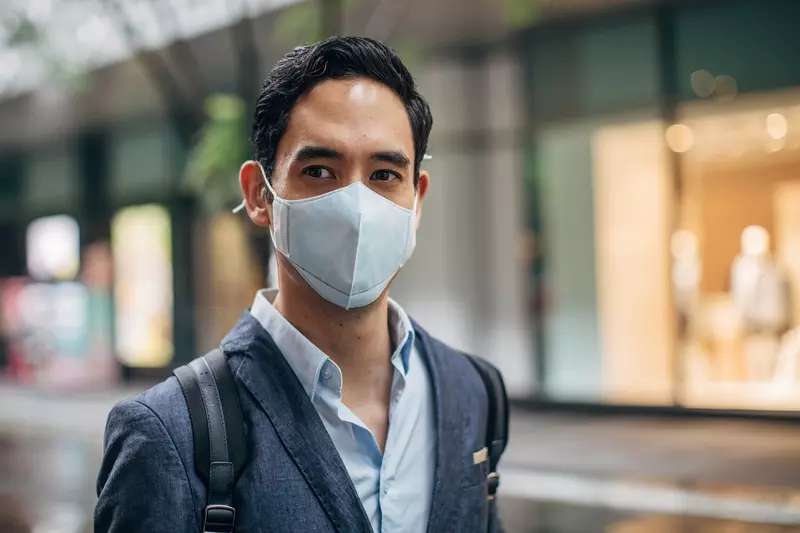- AdventHealth

After research proved face coverings are critical in helping our communities slow the spread of COVID-19, medical experts recommend we all wear face coverings in public places, especially when social distancing can’t be achieved. Lately, we’ve been seeing more and more people getting creative with their face masks, from bedazzling the exterior to adding bows on the ear loops.
Are Fashion Masks Safe?
Ultimately, the best type of mask is one that you will wear — granted that it is providing protection, of course. Face masks are not going away from our daily lives anytime soon, so many people are embracing the protective wear by taking the opportunity to have fun with masks in a more fashionable way.
If you’ve been making your own face covering, then you’re probably already adding a personalized touch with the fabrics you choose. A cloth face mask is suitable for most people, aside from health care workers.
A cloth mask isn’t medical-grade, but since we know that the virus causing COVID-19 is transmitted through large respiratory droplets, such as through coughing or sneezing, the cloth covering will help prevent those droplets from spreading to others if you’re out in public.
Your mask can be made as fancy or decorative as you’d like. If it looks appealing to you and will help you want to wear it (as long as your cloth mask fits these criteria per CDC recommendations) it will help provide protection:
- Allows for breathing comfortably
- Can be laundered and dried without damage or change to shape
- Completely covers nose and mouth
- Fits snugly against your face, resting under the chin and on the bridge of your nose
- Made with multiple layers of fabric
- Secures with ties or ear loops
Best Fabrics for Face Masks
In a study published by the American Chemical Society, researchers from the University of Chicago tested the filtration efficiencies of common fabrics, including cotton, silk and polyester-spandex chiffon. The scientists found that masks made with a combination of fabrics, such as high thread-count cotton with two layers of chiffon, were nearly as effective as an N95 medical-grade mask, filtering out 80% to 99% of particles when tested.
Gaiters and Bandanas as Face Masks
At AdventHealth, our medical experts agree that multi-fabric masks can provide the best protection — just ensure they’re being worn correctly and don’t have any gaps around your face. Not having gaps is especially important, and for this reason, gaiters and bandanas used as the only form of face covering are not recommended.
The face covering should be snug under your chin, and we know that gaiters and bandanas usually are not. In a recent Duke University study, it was proven that some types of neck gaiters aren’t effective in blocking out germs. These ineffective gaiters were made from polyester and spandex, so it’s important to look at the fabric used for your face covering to determine how protective it will be.
Face Mask Hygiene
Before putting on or removing your fashion mask, wash your hands thoroughly to prevent any germs from your hands spreading into your respiratory system. To help ensure the effectiveness of your face covering, also consider these tips:
- Avoid touching the mask while it’s on your face
- Put on and remove your mask by the ear loops or ties rather than touching the front of the mask
- Wash or sanitize your mask often
Coronavirus News Updates
Just remember, the best kind of mask is one you will wear, so make or create one that you’re comfortable in. Find more information related to COVID-19 on the Coronavirus Resource Hub.


